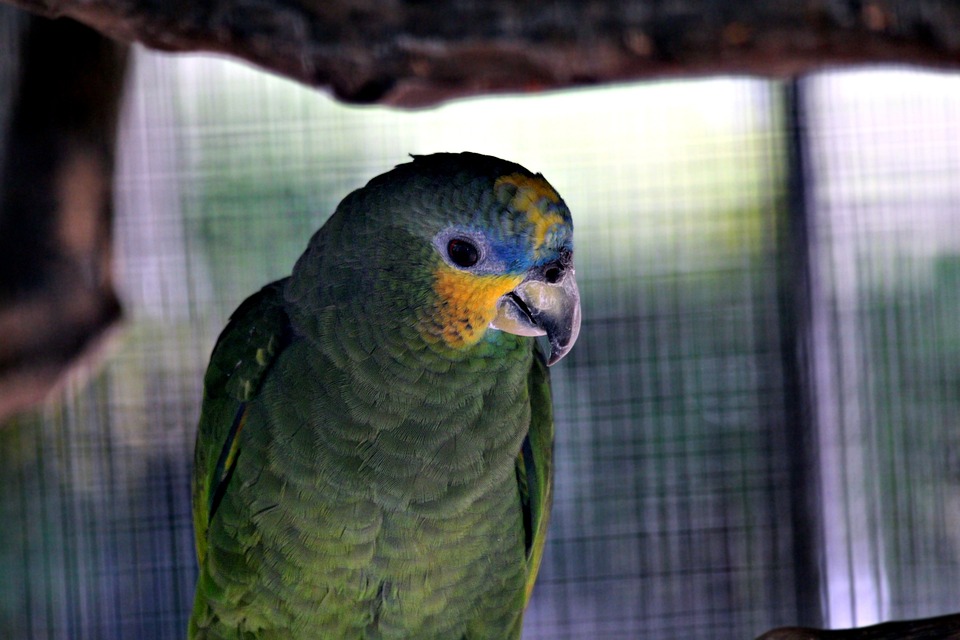Parrots are intelligent and social creatures that can form deep bonds with their owners. Just like humans, they go through hormonal changes that can significantly impact their behavior. Understanding these changes and learning how to address them is crucial for maintaining a happy and healthy parrot. In this article, we will discuss how to recognize signs of hormonal behavior in your parrot and provide effective strategies to manage and address them.
Understanding Parrot Hormonal Behavior
Parrots, especially during certain times of the year, experience hormonal changes that can affect their behavior. These changes are often associated with breeding seasons, but they can also occur at other times due to various factors such as diet, lighting, and the presence of a potential mate. Recognizing the signs of hormonal behavior in your parrot is essential for maintaining a harmonious environment and preventing potential issues.
Signs of Hormonal Behavior in Parrots
1. Increased Vocalization: Parrots may become more vocal, producing loud and repetitive sounds. They may also exhibit excessive screaming or squawking.
2. Aggressive Behavior: Hormonal parrots can display aggressive behavior towards their owners, other pets, or objects. They may bite, lunge, or become territorial.
3. Increased Nesting Activities: Your parrot may start exhibiting nesting behaviors such as shredding paper, gathering materials, or exploring confined spaces.
4. Regurgitation: Hormonal parrots may regurgitate food or liquid as a sign of courtship or bonding. This behavior can be directed towards their owners or objects they perceive as potential mates.
5. Mood Swings and Irritability: Parrots experiencing hormonal changes may show sudden shifts in mood, becoming irritable, or easily agitated.
6. Increased Physical Activity: Hormonal parrots may engage in excessive physical activities such as wing flapping, pacing, or incessant climbing.
Addressing Hormonal Behavior in Parrots
1. Limit Nesting Opportunities: Minimize potential nesting behavior by removing dark, confined spaces, and discouraging the accumulation of materials that can trigger nesting instincts.
2. Maintain Consistent Lighting: Parrots are influenced by the length of daylight, which can trigger hormonal behavior. Maintain a consistent lighting schedule to avoid unnecessary hormonal fluctuations.
3. Dietary Adjustments: Evaluate your parrot’s diet and ensure it is well-balanced and appropriate for their species. Avoid providing excessive amounts of high-fat foods, as they can contribute to hormonal behavior.
4. Environmental Enrichment: Provide plenty of mental and physical stimulation to keep your parrot engaged. Toys, puzzles, and social interaction can help distract them from hormonal behaviors.
5. Establish Clear Boundaries: Consistently reinforce boundaries and discourage aggressive behavior through positive reinforcement training techniques. Seek professional guidance if necessary.
6. Consult with an Avian Veterinarian: If you are concerned about your parrot’s hormonal behavior, consult with an avian veterinarian. They can provide further guidance, perform a health check-up, and recommend hormonal management options if necessary.
FAQs (Frequently Asked Questions)
Q: Are hormonal behaviors in parrots more common in certain species?
A: Hormonal behaviors can occur in all parrot species, but some species may be more prone to exhibiting intense hormonal behaviors.
Q: Is it normal for my parrot to regurgitate on me?
A: Regurgitation is a natural behavior for parrots during courtship or bonding. However, if it becomes excessive or directed towards inappropriate objects, it may be necessary to address this behavior.
Q: Can I prevent hormonal behavior in my parrot?
A: While you cannot entirely prevent hormonal behavior, you can manage and minimize its impact through environmental modifications, diet adjustments, and consistent training.
Q: Should I consider hormonal management options for my parrot?
A: If your parrot’s hormonal behavior becomes excessive or problematic, consulting with an avian veterinarian is advisable. They can discuss hormonal management options such as hormone injections or implants.
Q: Can spaying or neutering help control hormonal behavior in parrots?
A: In some cases, spaying or neutering can help reduce hormonal behavior in parrots. Discuss the potential benefits and risks with your avian veterinarian to make an informed decision.
Understanding and addressing hormonal behavior in your parrot is vital for maintaining a harmonious relationship. By recognizing the signs and implementing appropriate strategies, you can help your parrot navigate hormonal changes and ensure a happy and well-balanced life for both of you.









